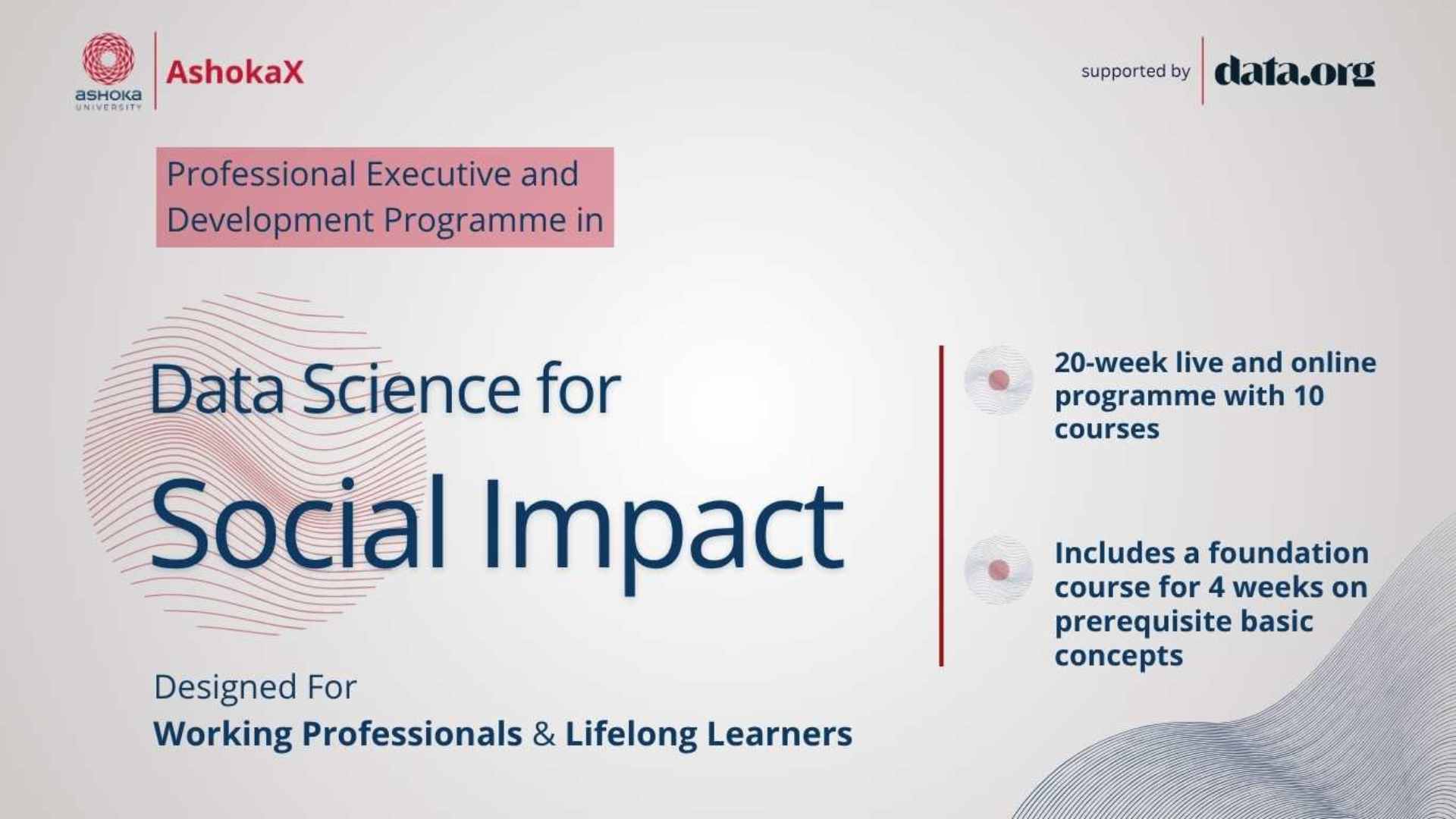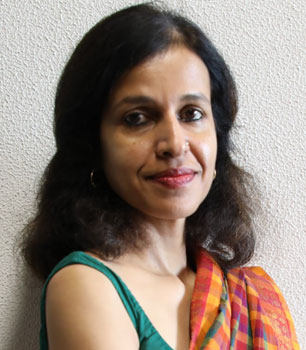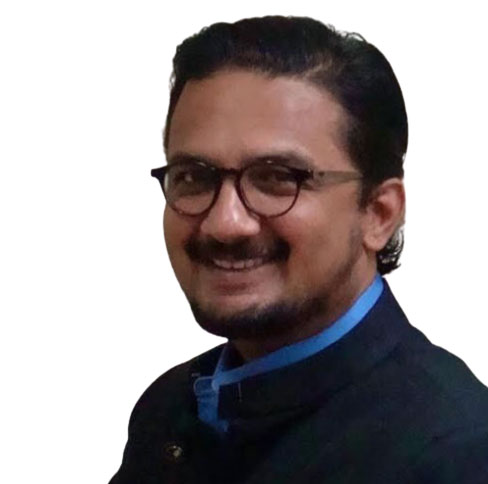Ashoka-Data Science for Social Impact Programme
AshokaX’s Data Science Programme to Welcome Third Cohort from September 2025

Across India, data has become a daily language at work—but few know how to truly speak it. According to a 2023 Canva survey, while 97% of professionals use data every week, 4 in 5 still feel anxious about it. This mismatch is more than a skills gap—it's a barrier to impact, especially in fields like public health, climate action, and development, where data could drive real, lasting change.
Recognising this, the Professional Executive and Development Programme (PEDP) in Data Science for Social Impact was launched by AshokaX. Ashoka University’s Centre for Data Science and Analytics developed the programme in collaboration with DataDotOrg as part of the India Data Capacity Accelerator (IDCA) initiative. Now entering its third cohort, PEDP is opening doors once again to learners ready to drive climate and health impact with purpose-built data skills.
Why professionals in climate and health need data science skills
Data is everywhere, but too few professionals know how to use it where it matters most.
From tracking malnutrition trends to mapping heat risks in Indian cities, the PEDP programme helps learners move from theoretical knowledge to hands-on action. The programme takes a sector-specific lens—offering live, online training over 20 weeks, with a strong focus on climate change and public health datasets.
Learners work on real-life assignments, collaborate on group projects, and engage in mentored discussions with faculty from Ashoka and partner institutions.
"You wouldn't find a better programme that integrates data science frameworks in climate and health solutions," said Dr. Pramath Raj Sinha, Chairperson, Board of Trustees at Ashoka University.
Designed for professionals from the field
The PEDP programme is tailored for working professionals in the social impact space. This includes data analysts, programme managers, and those working in sustainability, health, climate resilience, and public systems.
It offers two learning tracks:
- Data Science and Analytics for Social Impact: For those who want to deepen technical proficiency in areas like modelling, clustering, forecasting, and visualisation.
- Data Science for Social Impact Management: For generalists or mid-career leaders looking to use data to inform decisions, strategy, and project outcomes.
A foundational course ensures that all learners, regardless of background, are equipped with basics in statistics, coding, and data literacy.
A network of trust: expert faculty, global partners, and learner impact
At the core of PEDP is a learning experience shaped by top minds from Ashoka University and beyond. Professors such as Partha Pratim Das, Maya Ramanath, Gautam Menon, and Anurag Agrawal, along with experts from IIT Delhi, IIT Bombay, and other premier institutions—guide learners through the programme with rigour, empathy, and a strong real-world focus.
Since this programme is developed in partnership with DataDotOrg, a global collaborative for data-driven social change, the programme ensures learners gain not only technical proficiency but also a systems lens to tackle urgent problems in public health and climate resilience. Support from dedicated learning coordinators and faculty provides an ecosystem for peer learning and applied insights.
What past learners are saying
For Manoj PA, a past participant, the biggest takeaway was learning how to use data to build early warning systems for public health. His capstone project examined how green cover in Bengaluru could mitigate heat-related illnesses.
“The faculty didn’t just teach us tools. They taught us how to think about problems ethically, inclusively, and with the communities we’re trying to help in mind,” he said.
Srishti Chhatwal, who works in smart farming, said the course reshaped how she understood data: “Not as numbers, but as a language for designing better climate resilience on the ground.”
Graduates of PEDP come from impactful organisations including J-PAL South Asia, Deloitte India, Council on Energy, Environment and Water (CEEW), United Nations Development Program, International Innovation Corps (University of Chicago), Sattva Consulting, Central Square Foundation, Sambodhi Research and Communications, Rocket Learning, and HCL Foundation.
Admissions now open
Applications for the 2025 cohort are now live. The course fee is ₹1,20,000 with scholarships available on a first-come, first-served basis. Ashoka alumni (including students and parents) receive a 15% discount, and referrals get 10% off.
Interested professionals can download the full prospectus and apply here: https://x.ashoka.edu.in/data-science-2025
Learn to lead with data. Apply now.

















